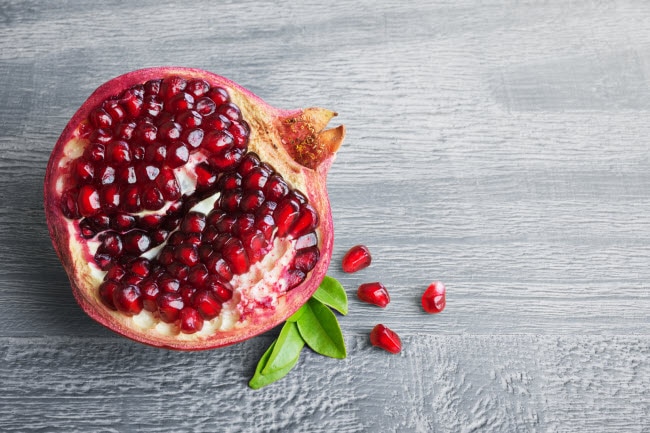If you think flaxseeds and bok choy are superfoods, you’re right. Same goes for blueberries, broccoli and dozens of other eats, including the humble tomato and boring yogurt. Decades ago, bananas were a superfood (and still could be, according to certain sources). Exactly which edibles qualify as superfoods depends on who you ask.
What are superfoods?
There’s no legal or technical definition for “superfood” nor a universal list of superfoods. Usually, a superfood is uniquely beneficial to health and has bells and whistles beyond basic nutrients: high antioxidant levels, for example. It’s also usually a whole plant-based food. Certain fruits, veggies and grains often top superfood lists, along with nuts, seeds and beans.
If you tend to eat healthfully, knowledge of superfoods can be fun to dork out with, as in: Ooo neat, the purple cabbage I’m eating has indole-3-carbinol, aka I3C, which functions like an anti-estrogen, making it a beast at fighting breast cancer.
But focusing only on a superfood or two at the expense of the rest of your diet is worse than generally eating well without paying attention to “superfood” status (following Harvard’s Healthy Eating Plate is a great way to chow smartly day-to-day).
I’ll assume you usually nourish yourself and are looking to be a superfood nerd. To that end, here are 4 winners:
Flaxseeds
Flaxseeds are terrific at fighting and preventing breast cancer and prostate cancer, thanks to their abundant lignans. Plus they have heart-healthy omega-3 fatty acids. They control cholesterol and triglycerides and lower blood pressure. A 2013 study showed flaxseeds “induced one of the most potent antihypertensive effects achieved by a dietary intervention.”
They won’t do you much good if you eat them whole, though. That’s because you can’t digest the little gems due to their outer shell. Ground is the way to go. Buy whole flaxseeds (golden are considered best) then grind them immediately before use or grind enough for only a few days, in order to avoid oxidation. Flaxmeal is great in smoothies, baked into muffins and sprinkled on everything from casserole to soup.
Garlic
Bet you already know about this superfood. Loads of studies show garlic’s power at fighting everything from cancer to the common cold. It’s got kaempferol and quercetin, flavonoids that are well known for anti-cancer properties, along with saponins, which are known to prevent tumors. Garlic also has been shown to reduce cholesterol and high blood-sugar levels.
But you might not know that the best way to preserve cooked garlic’s cancer-fighting power is to mince/crush/slice it at least 10 minutes before taking it to heat (same goes for other members of the allium family, like onions and shallots). The waiting period allows garlic’s special enzyme to do its thing. “The allyl sulfur compounds produced from the enzyme’s reaction are critical to garlic’s anti-cancer effects,” said a researcher with the Penn State study noting the need for the pause. “If garlic was heated or roasted immediately after crushing, the enzyme was de-activated by the heating process and garlic’s anti-cancer effects were blocked.”
Purple cabbage
Purple cabbage is a powerhouse at preventing cancer, especially breast, colon, lung and prostate cancer. Cabbage has indole-3-carbinol (I3C), which helps lower harmful levels of estrogen that the body naturally creates, in turn helping keep breast cancer at bay. It also has sulfurophane, which whoops the butt of toxins that could otherwise attack your intestines. Other veggies in the cruciferous family offer terrific health boosts too, especially broccoli, brussels sprouts and kale.
Walnuts
This satisfying nut is one of the best plant-based sources of omega-3’s, the fatty acids that studies show reduce risk of cognitive decline, Alzheimer’s disease and dementia. Omega-3 fats also have been shown to help prevent heart disease and stroke, as well as ease eczema and rheumatoid arthritis. We’re not done yet! Walnuts have plenty of a vitamin E. And they have ellagic acid, an antioxidant that in studies has been shown to fight cancer.
†These statements have not been approved by the Food and Drug Administration. These products are not intended to diagnose, treat, cure or prevent disease.
Mitra Malek writes and edits wellness content.

